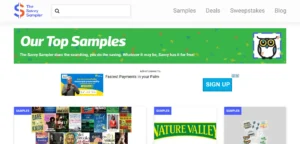If you ever receive an email from security@facebookmail.com, your first thought might be: Is this real or a scam? You’re not alone. Many people feel confused when they see an unfamiliar sender in their inbox, especially when it includes urgent messages about account security or password resets.
The truth is, Security@facebookmail.com is a legitimate email address used by Facebook to notify users about important account-related updates. However, just because the domain is real doesn’t mean every message from it is safe. Scammers often mimic these types of emails to trick users into giving away sensitive information.
In this blog post, we’ll take a deep dive into what Security@facebookmail.com really is, how to tell if an email is genuine, and what steps you should take if you receive one. Whether you’re a regular Facebook user or someone concerned about online safety, this guide will help you stay informed and protected.
In a Nutshell
- Security@facebookmail.com is a real email address used by Facebook to notify users about account security.
- These emails often include login alerts, password reset confirmations, and security recommendations.
- Always verify the email’s content and links before taking any action.
- Be cautious of messages asking for personal information or login credentials—they are likely scams.
- Look for signs of phishing, such as spelling errors, suspicious links, or urgent language.
- Enable two-factor authentication to add an extra layer of protection to your account.
- Regularly review your account activity and connected apps to ensure everything looks normal.
- Report any suspicious emails to Facebook to help maintain a safer platform.
- Understand that while scammers can spoof this address, staying alert helps you avoid being tricked.
- Stay informed and proactive to keep your Facebook account secure and protected.
What Is Security@facebookmail.com?
Security@facebookmail.com is an official email address that Facebook uses to communicate with its users regarding their account security. This includes things like login alerts, password change confirmations, and notifications about suspicious activity.
Facebook sends these emails automatically whenever there’s a significant action taken on your account. For example, if you log in from a new device or location, you may receive a message from this address letting you know.
It’s important to understand that while the domain facebookmail.com is owned by Facebook, scammers can sometimes spoof this address. That means they make fake emails look like they came from this source. So, even though the email is real, you should always double-check for signs of phishing before clicking any links or sharing personal details.
Knowing what to look for can save you from falling victim to cyber attacks. Let’s explore more about how Facebook uses this email address and why it matters to you as a user.
Why Does Facebook Use Security@facebookmail.com?
Facebook chooses to send communications through Security@facebookmail.com because it helps users instantly recognize when something important is happening with their account. The use of “security” in the address makes it clear that the message relates to safety and privacy.
This email address plays a key role in protecting your personal data. When Facebook detects unusual behavior—like multiple failed login attempts—it sends warnings to alert you early. These alerts give you a chance to act fast and secure your profile.
Sometimes, you’ll get emails asking you to confirm your identity or review recent logins. These are normal practices designed to keep your information safe. However, if you didn’t trigger any of these actions yourself, it could be a red flag.
Always read the content carefully and check for mismatched URLs or grammatical errors—common signs of phishing scams. Staying alert helps you avoid becoming a victim of fraud.
How to Recognize a Real Email From Facebook
A genuine message from Security@facebookmail.com will usually follow a standard format. It starts with a greeting using your name or username, followed by a clear reason for the email. The body of the message will explain what action was taken and may offer options like confirming the activity or securing your account.
You can verify the authenticity of the email by hovering over any links without clicking them. If the link shows a destination that looks strange or unrelated to Facebook, do not proceed. Also, real emails from Facebook rarely ask for sensitive information like passwords or social security numbers.
Another sign to watch for is tone. Official emails from Facebook are professional and never threatening. If the message pressures you to act immediately or threatens account deletion, it’s likely a scam.
Familiarizing yourself with these signs helps protect you from being tricked into giving away your private data and keeps your account secure.
Signs That an Email Might Be Fake
Even if an email appears to come from Security@facebookmail.com, there are several warning signs that suggest otherwise. One of the most common red flags is spelling or grammar mistakes within the message. Official Facebook emails are professionally written and free of errors.
Also, pay attention to the subject line. Scammers often use dramatic language like “URGENT: Your Account Will Be Deleted!” to create panic and push you into acting quickly without thinking. Real Facebook emails use calm and informative language.
Another thing to examine is the URL embedded in any links. If the web address looks slightly different from the official Facebook site, such as having extra characters or misspellings, it’s probably fake. Always manually type Facebook’s URL into your browser instead of clicking links in unexpected emails.
Lastly, if the message asks for personal information or login credentials, treat it with suspicion. Facebook will never ask for your password via email.
What to Do If You Receive a Suspicious Message
If you suspect that an email from Security@facebookmail.com is fake, the first thing to do is avoid clicking any links or downloading attachments. These actions could expose your device to malware or lead you to a phishing website designed to steal your information.
Instead, go directly to Facebook’s official website by typing the URL into your browser. Once logged in, check your account for any unauthorized activity. If you notice anything out of the ordinary, change your password immediately and enable two-factor authentication for added protection.
You can also report the suspicious email directly to Facebook. They have tools in place to investigate and block fraudulent messages. Reporting helps keep other users safe too.
Remember, staying cautious and proactive is the best way to defend yourself against online scams. Don’t let fear or urgency push you into making hasty decisions.
How to Protect Your Facebook Account
Securing your Facebook account goes beyond recognizing fake emails. Start by using a strong, unique password that includes a mix of letters, numbers, and symbols. Avoid reusing passwords across different websites to reduce risk.
Enabling two-factor authentication adds another layer of security. With this feature turned on, you’ll receive a code via text or authentication app every time you log in from a new device. This ensures that even if someone guesses your password, they still can’t access your account without the second code.
Review your login activity regularly. Facebook allows you to see where and when your account has been accessed. If you spot any unfamiliar locations or devices, log out remotely and change your password.
Also, be careful about the apps and websites you connect to Facebook. Some third-party services request unnecessary permissions. Limit access only to trusted sources and remove outdated connections.
These simple yet effective habits can significantly reduce the chances of your account getting compromised.
Can Scammers Spoof Security@facebookmail.com?
Yes, scammers can make fake emails appear as if they were sent from Security@facebookmail.com. This technique, known as email spoofing, tricks users into believing the message is authentic.
They often copy the style of real Facebook emails to make them look convincing. Sometimes, they even include logos and formatting similar to official messages. But unlike real emails, their goal is to steal your personal information or install malware on your device.
One way to detect spoofed emails is to look at the full header information. Although this requires some technical knowledge, checking the originating server can reveal whether the message actually came from Facebook or a malicious source.
Most users may not be able to analyze headers easily, so it’s better to rely on visual cues and common sense. Never click on suspicious links. Instead, visit Facebook directly through your browser to verify any claims made in the email.
Being aware of these tactics helps you stay ahead of cybercriminals.
Why Facebook Sends Password Reset Emails
Facebook sends password reset emails when someone requests to change the password on your account. This can happen if you’ve forgotten your password or if someone else tries to access your account without permission.
When you receive one of these emails, it’s a good idea to check if you initiated the request. If you did, simply follow the instructions to set a new password. But if you didn’t ask for a change, it could mean that someone is trying to take control of your account.
In that case, act quickly. Click the link in the email to cancel the request and secure your account. Then, change your password to something stronger and consider enabling two-factor authentication for extra protection.
Getting an unexpected password reset email is unsettling, but it’s a sign that Facebook is working to keep your account safe. Just make sure to respond appropriately and take steps to prevent future breaches.
Understanding Facebook Protect Emails
Facebook Protect emails are part of a security initiative aimed at helping users strengthen their account protection. These messages encourage users to enable additional security features like two-factor authentication and trusted contacts.
While these emails look similar to other Facebook notifications, they serve a specific purpose: improving your account’s defenses against hacking and unauthorized access. They are not scams, as some users mistakenly believe.
However, because they resemble standard security alerts, it’s easy to confuse them with phishing attempts. The key difference is that Facebook Protect emails provide clear, helpful guidance and direct you to official security settings pages.
If you receive one, take the time to review the suggestions. Enabling these protections makes it much harder for hackers to gain access to your personal data.
Understanding the intent behind these emails helps you make informed decisions about your digital safety.
Frequently Asked Questions
Is Security@facebookmail.com a real email?
Yes, it is a legitimate email address used by Facebook to send security notifications to users.
Should I trust emails from Security@facebookmail.com?
You can trust them if they match Facebook’s standard email format and don’t ask for sensitive information.
What should I do if I receive a suspicious email?
Do not click any links. Go directly to Facebook’s website to check your account activity and report the email.
Does Facebook ever ask for my password in emails?
No, Facebook will never ask for your password via email. Any message requesting this is a scam.
How do I verify if an email is fake?
Check for spelling errors, hover over links to see where they lead, and avoid sharing personal details.
Why did I get a password reset email from Facebook?
Someone requested a password change for your account. If it wasn’t you, secure your account immediately.
What is Facebook Protect?
It is a security program that encourages users to enable extra protections like two-factor authentication.
Can hackers fake emails from Facebook?
Yes, scammers can spoof the email address. Always verify the content and links before responding.
How can I secure my Facebook account?
Use a strong password, enable two-factor authentication, and monitor your login activity regularly.
What happens if I click a phishing link?
Your device may become infected with malware or you could accidentally share personal data. Run a security scan and change your passwords immediately.





















